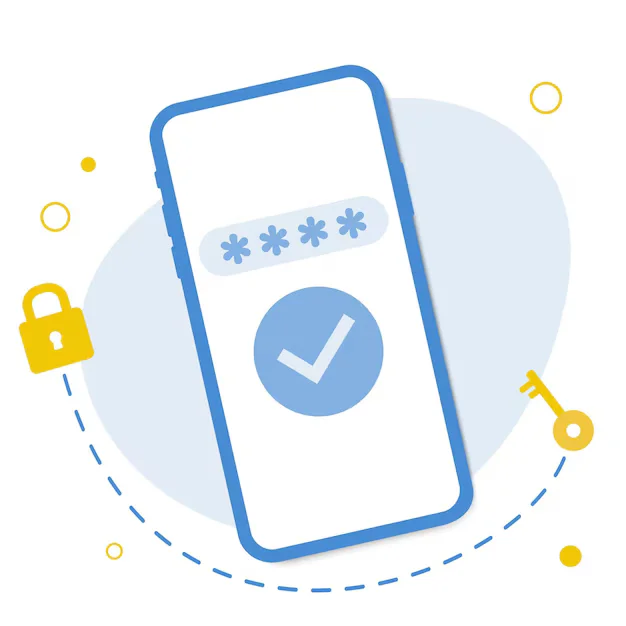Essential Security Tips for Every WordPress Website
Essential Security Tips for Every WordPress Website

Securing your WordPress site is crucial to protect data, users, and your brand reputation. This blog shares practical tips like using strong passwords, limiting login attempts, and keeping plugins updated. Learn how to set up firewalls, enable two-factor authentication, and perform regular backups. Ideal for Happy Coders developers and clients managing WordPress websites in 2025. Implement these tips to safeguard your site from common vulnerabilities and cyberattacks.
Top 10 WordPress Security Practices You Should Never Ignore
WordPress powers over 40% of the web, making it a prime target for attacks. Following essential security practices is critical to protect your site and data. Happy Coders recommends these must-do actions for every WordPress website. A secure site builds trust, improves SEO, and keeps your business running safely.
Key Security Practices:
-
Always use the latest version of WordPress
-
Regularly update plugins and themes
-
Remove unused plugins and themes
-
Use strong, unique passwords
-
Enable automatic backups
How to Protect Your WordPress Admin Area from Hackers
The wp-admin area is the gateway to your site’s backend—and often the first target of attacks. Happy Coders recommends locking it down with multiple layers of protection. From changing the login URL to limiting login attempts, every step counts. Keep your admin safe, and your entire site stays safe.
Tips to Secure Admin Panel:
-
Change the default login URL
-
Limit login attempts
-
Use two-factor authentication (2FA)
-
Whitelist specific IPs
Choosing a Secure Hosting Provider for Your WordPress Site
No matter how secure your code is, poor hosting can open backdoors. Happy Coders always suggests choosing a hosting provider that focuses on WordPress security. Features like server-level firewalls, malware scanning, and automated backups are a must in 2025. A secure host is your first line of defense.
What to Look For in Hosting:
-
Daily backups and auto-update support
-
Server-side firewalls and DDoS protection
-
Regular malware scans
-
SFTP and SSH access
Why You Must Keep Your WordPress Updated – Always!
Outdated WordPress installations are easy targets for hackers. Updates not only bring new features but also fix known vulnerabilities. Happy Coders configures automatic updates for core files and critical plugins. A simple update can prevent a major breach. Stay current, stay safe.
Update Essentials:
-
Enable automatic WordPress core updates
-
Regularly update themes and plugins
-
Remove plugins no longer maintained
-
Use a staging environment to test updates
Strengthening WordPress Login Security the Smart Way
The login page is where most brute-force attacks happen. With simple improvements, you can block these attempts and keep intruders out. Happy Coders adds CAPTCHA, 2FA, and login attempt limits for every project. Strengthen access and discourage bad actors.
Smart Login Security Tips:
-
Use Google reCAPTCHA
-
Enable two-factor authentication
-
Limit login attempts with a plugin
-
Rename or hide the login page
Install a Security Plugin – Your Website’s Bodyguard
WordPress security plugins monitor, scan, and protect your website 24/7. Happy Coders recommends using only trusted, lightweight plugins to avoid slowing down the site. These plugins provide firewall rules, malware scans, and login protection in one place. Think of it as a digital security guard.
Recommended Plugins:
-
Wordfence Security
-
Sucuri Security
-
iThemes Security
-
All In One WP Security & Firewall
Backups: The Most Underrated Security Strategy
No system is 100% secure—but backups give you peace of mind. Regular backups help restore your site instantly in case of hacks, crashes, or errors. Happy Coders automates backups to secure locations like Dropbox or Google Drive. Don’t wait until it’s too late. Secure your data before disaster strikes.
Backup Tips:
-
Schedule automatic backups daily/weekly
-
Store backups off-site (cloud or external server)
-
Use plugins like UpdraftPlus or BlogVault
-
Test restore functionality regularly
Protecting wp-config.php and Other Critical Files
The wp-config.php file contains sensitive data like database credentials. Happy Coders ensures this file is unreadable to outsiders by moving it and changing permissions. Securing your .htaccess file is another must-do. File security protects your site at the core level.
File Protection Tips:
-
Move
wp-config.phpone level above root -
Set file permissions to 400 or 440
-
Disable directory browsing via
.htaccess -
Protect
/wp-content/folder with rules
SSL & HTTPS: Encrypt Your WordPress Site for 2025 and Beyond
SSL encryption protects data transferred between users and your website. It’s a requirement in 2025—not just for eCommerce, but for SEO and user trust. Happy Coders installs and configures SSL certificates on all WordPress projects. Browsers now label HTTP sites as “Not Secure”—don’t be one of them.
SSL Implementation Steps:
-
Get a free SSL via Let’s Encrypt or Cloudflare
-
Force HTTPS using plugins or
.htaccess -
Update internal links and scripts to HTTPS
-
Monitor certificate expiry
Secure Your WordPress Database from Inside Out
The database stores everything—from posts to passwords. Securing it means choosing strong credentials, using custom table prefixes, and limiting DB access. Happy Coders also advises regular database optimization and security audits. A strong database = a strong foundation.
Database Security Practices:
-
Use strong, unique DB usernames and passwords
-
Change default
wp_table prefix -
Restrict DB access to specific IPs
-
Use plugins for database cleanup and optimization



